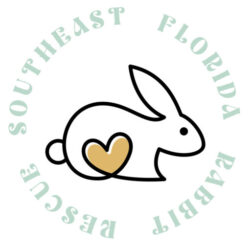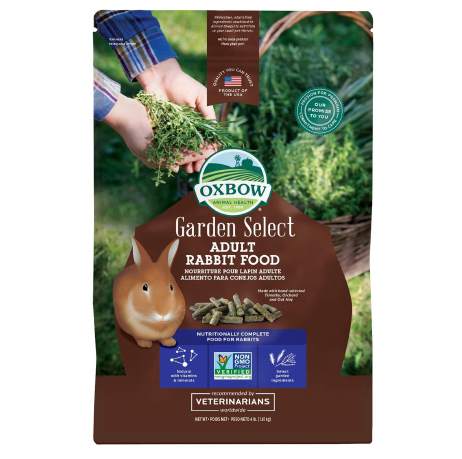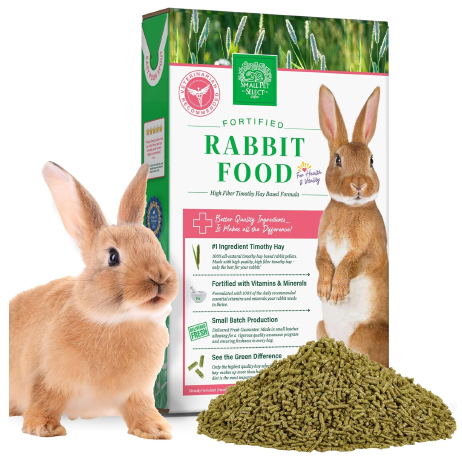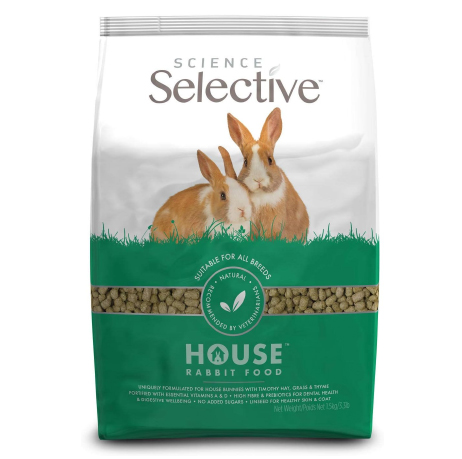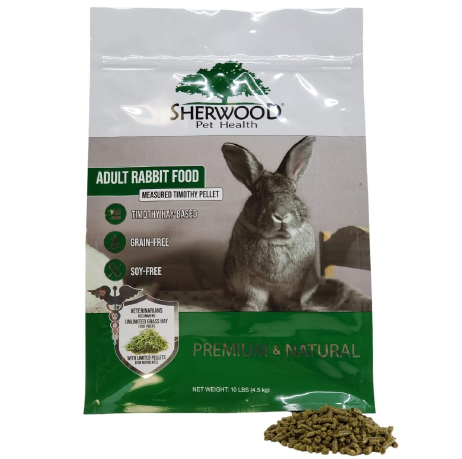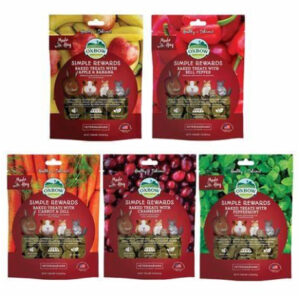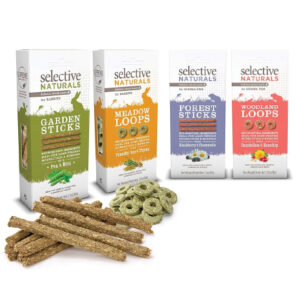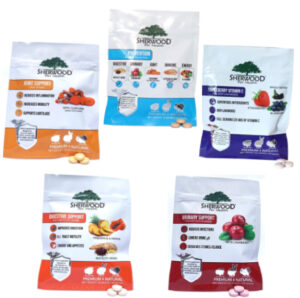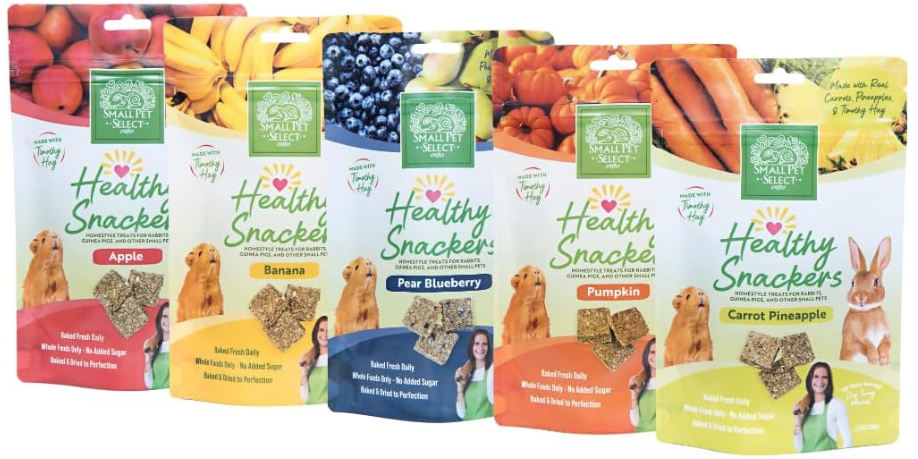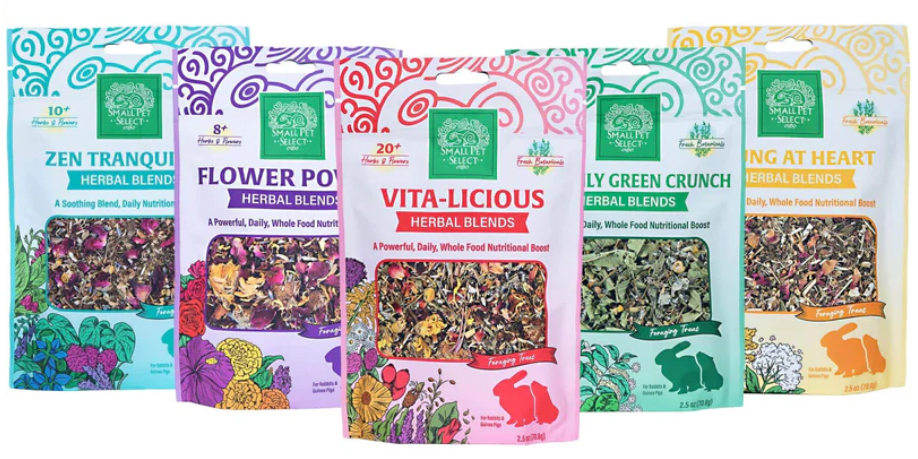Diet for Domestic Rabbits
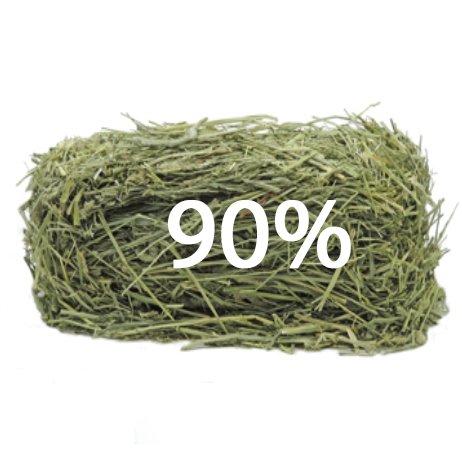
HAY
80-90% of a rabbit’s should be hay. Rabbits should have UNLIMITED access to fresh high-quality hay 24/7. Soiled hay should be changed out daily.
- Juvenile rabbits (up to 6 months): Alfalfa Hay
- Adult rabbits (6 months +): Timothy Hay
PRO TIP: “Oxbow” and “Small Pet Select” offer a variety of high quality hays (oat, botanical, orchard) if you would like to offer diverse flavors and textures in addition to western timothy hay.

LEAFY GREENS & VEGETABLES
10% of a rabbit’s diet should be green leafy vegetables. Organic vegetables (no pesticides) are recommended whenever possible. Always remove seeds as these are a choking risk.
- Juvenile rabbits: can start to have small amounts of vegetables introduced into their diet at 3 months old. Vegetables should be introduced gradually, one per week, so that you can monitor for sensitivity or stomach upset. If any vegetable seems to cause digestive problems do not feed it in the future.
- Adult rabbits: can have 1-2 cup (a small pinch) of leafy greens and 1-2 tablespoon of non-leafy green vegetables per day.
You can feed 1-2 cup of green leaf, red leaf and butter leaf lettuces daily. Other leafy greens like romaine, spinach, kale, turnip greens, dandelion greens, arugula, bok choy, and watercress and herbs like cilantro, basil, parsley, mint, and dill can be offered for variety 1-3 times per week.
You can also feed 1-2 tablespoon of the following non leafy vegetables: bell peppers, celery (remove veins or cut into small pieces), cucumber, green beans, broccoli, brussel sprouts and radishes.
If your rabbit’s poops become small, dark, or smelly this amount should be reduced to every other day or 3 times per week. Read this: “Guide to Rabbit Poop“

FORTIFIED PELLETS
5% of a rabbit’s diet should be fortified food pellets.
- Baby rabbits (up to 3 months): unlimited alfalfa based pellets.
- Juvenile rabbits (3-6 months): 1/4 cup of alfalfa based pellets.
- Adult rabbits (6 months +): 1/8 cup (2tbsp) of pellets per 2lb of body weight.

FRUITS
Less than 5% of a rabbit’s diet can be fruits and treats. Rabbits shouldn’t get more than 1-2 teaspoon size servings of fruits per week. That’s about the size of 1 strawberry or 1 baby carrot PER WEEK.
Carrots, apple, berries (strawberries, blueberries, raspberries), orange, banana, pear, grapes (cut), kiwi, mango, papaya, peach, pineapple, apricot, tomatoes, watermelon, cantaloupe.
Always remove seeds and pits. Offer watery fruits like watermelon and cantaloupe sparingly as they can cause diarrhea.
WE RECOMMEND: “OXBOW“, “SMALL PET SELECT“, “SCIENCE SELECTIVE“, or “SHERWOOD“
Avoid: nuts, seeds, corn, grains, dairy, fillers, artificial colors and added sugars.
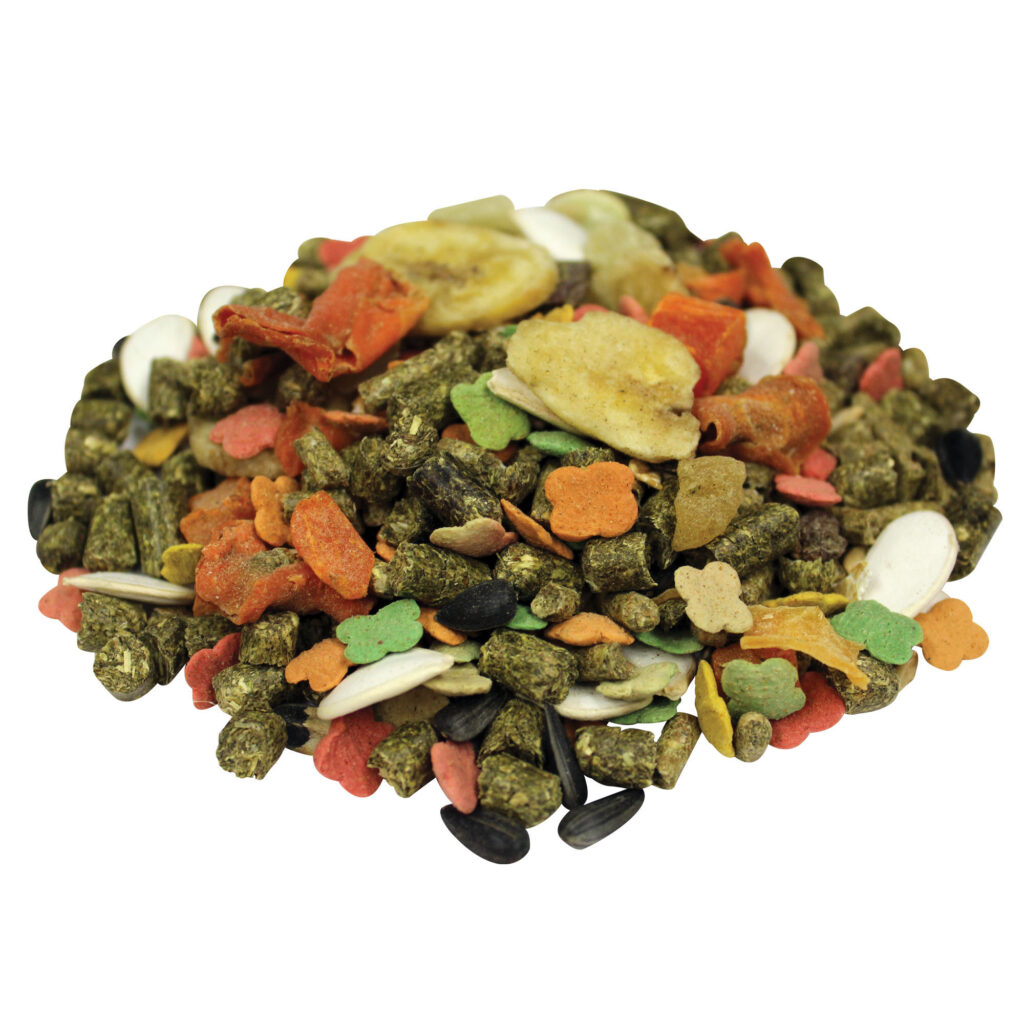
“Mix” pellets and treats with seed and corn can lead to chocking and malnutrition due to selective eating. The first ingredient listed for pellets should be timothy hay for adult rabbits or alfalfa hay for young rabbits.

